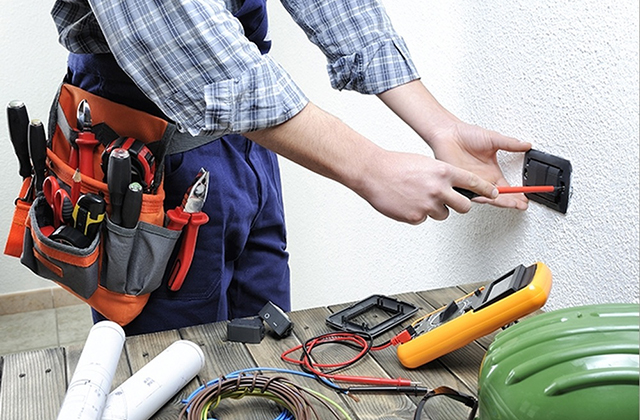5 Steps to Become a Licensed Master Electrician in the USA
Electricians are responsible for installing new electrical infrastructure, while keeping the wiring and equipment in existing buildings and power grids in top condition. Since modern society depends on electricity to operate, the electrical profession can be very rewarding. According to the US Department of Labor, the average annual wage for electricians in 2016 exceeded $56,000, and in specialized sectors such as oil and gas it is even possible to make a six-figure income. Emergencymelbourneelectrician.com.au is a company with years of experience providing high-quality 24 hr electricians Melbourne, wiring and cabling for Melbourne homes and businesses alike.
This article will provide an overview of the process required to obtain a master electrician license in the USA. Keep in mind this is a general overview, and there are specific requirements that vary by state.
Step 01 – Meet the Minimum Requirements to Receive Training
The electrical profession requires ample training to learn about its technical aspects and construction practices, while gaining awareness of the risks it involves. However, the following requirements must be met before embarking on the learning process:
- A minimum age of 18.
- Obtaining a high-school diploma.
- Passing an aptitude test.
- Passing a substance abuse test.
Step 02 – Receive Training as an Electrician Apprentice
If you meet the minimum requirements you can start receiving training to become an electrician, and generally there are two paths available, which take from 4 to 5 years.
Apprenticeship programs are normally managed by electrician trade unions or the government, and you are trained in the electrical trade by working under the supervision of licensed electricians. This is a “learning by doing” approach with relatively little classroom learning, where you start with basic tasks and are given more responsibility as you acquire knowledge and experience.
Trade schools provide an approach with a higher focus on classroom learning, where you are then required to work for a minimum number of hours that is specified by state.
Of course, a mixed approach is also possible: many electricians start in trade schools and then complete the required work-hours in apprenticeship programs. Keep in mind that there are many sub-fields in the electrical trade; for example, working on residential installations is very different from working on transmission and distribution lines. If you would like to specialize in one area, it is recommended that you look for an apprenticeship with a company that works in that business sector.
Step 03 – Become a Journeyman Electrician
Regardless of whether you entered an apprenticeship or attended a trade school, you will eventually become eligible to take the journeyman electrician test. The requirement is completing an apprenticeship, or the combination of a trade school program and a work-hour quota. You become a Journeyman Electrician after passing the test.
After becoming a Journeyman Electrician, you can legally work in residential, commercial, industrial and utility settings, either as an independent technician or as a contractor’s employee.
Although Journeyman Electricians hold a license, there is a higher qualification available: the Master Electrician License. If you earn one, your professional field broadens and you can also expect a higher income.
Step 04 – Obtain Experience as a Journeyman Electrician
Becoming a Master Electrician just after becoming a Journeyman is not possible, since there are work experience requirements before being eligible for the test. However, Journeyman Electricians have much more options than apprentices with regards to their work, and their license gives them independence.
An Electrical Engineer may also be eligible for the Master Electrician test, depending on the type and amount of experience he or she has accumulated.
Step 05 – Obtain a Master Electrician License
Once you are a highly experienced Journeyman Electrician, you become eligible to take the Master Electrician test. Keep in mind, however, that there may be state-specific requirements to meet. Master Electricians can charge more for their services due to their experience and qualifications, and are also allowed to become contractors, starting their own company and hiring other electricians.

